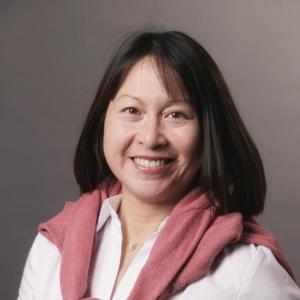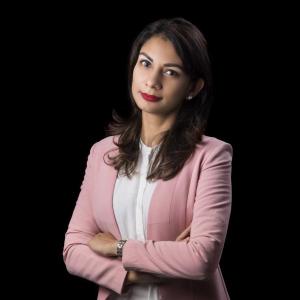Short description:
Dr. Gutu Olana Wayessa is a University Lecturer at the University of Helsinki, Finland. He received BSc from Haramaya University, Ethiopia; MSc from Norwegian University of Life Sciences, Norway; and Ph.D. in Social Sciences, Development Studies from the University of Helsinki, Finland. He was (1 February to 31 July 2019) a Visiting Research Scholar at the American University, Washington DC, USA. His research interests include displacements and resettlements, climate change, large-scale investments, land governance, environmental and social justice, state-society relations, social movements, and rural livelihoods. His theoretical and methodological interests encompass political ecology, political economy, philosophy of science, and mixed methods.
Short description:
I am a law and policy specialist with experience working in sub-Saharan Africa, specifically Eastern, Western and Southern Africa. My expertise lies in Law, governance and development. I possess a Bachelors, Masters and a Doctoral degree in law and various development certificates. My research focus is on the role of law in development processes within Africa. My expertise lies in Law, governance and development. My interest is in employing legal doctrines, principles, tools and practices to address everyday development challenges facing people in the global South, specifically in Africa. I engage the study of the rule of law in inclusive development through all its aspects: socioeconomic, development, human development and political development. Currently I am working on issues of promotion of socio-economic and development rights; displacement; and legal/economic empowerment in transition/fragile states.
Short description:
Karen is Interdisciplinary Professorial Fellow in Law, Ethics and Informatics at the University of Birmingham in the School of Law and the School of Computer Science. She is involved in several technology policy and related initiatives in the UK and worldwide, including those concerned with the governance of AI, one of her key research interests. In particular, she is a member of the EU’s High Level Expert Group on Artificial Intelligence (since June 2018) and a Member and Rapporteur for the Council of Europe’s Expert Committee on human rights dimensions of automated data processing and different forms of artificial intelligence (MSI-AUT) and special adviser to Council of Europe's European Committee on Crime Problems (CDPC), Working Group of Experts on AI and the Criminal Law.
Short description:
Dr. Timothy Lynch, the most cited school practitioner on Google Scholar, is the Western Co-Head for ECE and Primary at Yew Chung International School of Chongqing. He is a Senior Fellow of The Higher Education Academy (UK Professional Standards Framework), an active teacher (school leadership) and researcher. He is the IAHPEDS Governor for Oceania and creator of Lauve Wellbeing.
Short description:
Stefan Wolff is Professor of International Security at the University of Birmingham, England, UK. A political scientist by background, he specialises in the management of contemporary security challenges, especially in the prevention and settlement of ethnic conflicts and in post-conflict reconstruction in deeply divided and war-torn societies. He has extensive expertise in the former Soviet Union and the Middle East, and has also worked on a wide range of other conflicts elsewhere, including in Africa and in Central, South and Southeast Asia. Bridging the divide between academia and policy-making, he has been involved in various phases of conflict settlement processes, including in the disputed territories in Iraq, in Transnistria and Gagauzia (Moldova), and in Yemen.
Short description:
I am an expert in public policy and international development. I work currently as the Executive Director at IE School of Public and Global Affairs and professor of practice of International Development and Public Policy, Social Entrepreneurship and Project Management.
I have over 10 years of professional experience focused on the design, implementation and evaluation of public policies and international programmes in countries in Africa, Europe, America and Asia. I have designed strategies for better economic growth with the Government of Sri Lanka and the Harvard Center for International Development; carried out impact evaluations in Perú and Belize with international development banks; led the institutional humanitarian response and disaster risk management programmes of United Nations and the Government of Ethiopia and Ecuador; managed international aid projects at the Spanish Ministry of Foreign Affairs in different countries; and worked fostering innovation ecosystems in cities like San Sebastian.
I hold a Master in Public Administration in International Development (MPA/ID) by the Harvard Kennedy School (2017), being recipient of the international scholarship of “La Caixa” foundation. I also hold a Master in International Relations (2014) and a BEng+MEng in Telecommunication Engineering with cum laude in the final thesis (University of Valladolid, 2006). Additionally, I completed the professional piano studies at the professional music school of Valladolid (2003).
In addition, I am the president of the Spanish alumni network of the Harvard Kennedy School; I collaborate leading the international expansion of IMFAHE, a social international mentorship foundation; and participate as a coach with EuropeLab, an organisation that empowers the new generation of civic and political European leaders. I have also published opinion pieces and have been interviewed for relevant publications.




